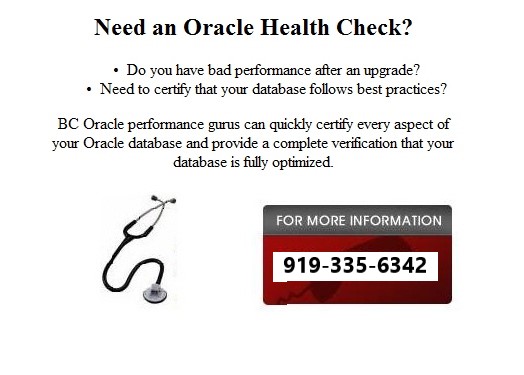

Kick it up a
notch!
Faster Oracle queries using parallel features
Jan 25, 2000
Donald Burleson
© 2001 TechRepublic, Inc.
|
Oracle version 7.2 introduced some powerful new
features to allow parallel processes to be used against the Oracle database.
These features include parallel create table as select, parallel query, and
parallel index building. Remember that you don't need to have parallel
processors (SMP or MPP) in order to use and benefit from parallel processing.
Even on the same processor, multiple processes can speed up queries. Oracle
parallel query option can be used with any SQL SELECT statement, as long as the
query performs a full-table scan on the target table.
Parallel queries are most useful in distributed databases where a single logical
table has been partitioned into smaller tables at each remote node. For example,
a customer table that is ordered by customer name may be partitioned into a
customer table at each remote database, such that we have a phoenix_customer, a
los_angeles_customer, and so on. This approach is very common with distributed
databases where local autonomy of processing is important. However, what about
the needs of the corporate headquarters? How can they query all of these remote
tables as a single unit and treat the logical customer table as a single entity?
While this "splitting" of a table according to a key value violates
normalization, it can dramatically improve performance for individual queries.
For large queries that may span many logical tables, the isolated tables can
then easily be reassembled using Oracle's parallel query facility:
Create view all_customer as
select * from phoenix_customer@phoenix
UNION ALL
select * from los_angeles_customer@los_angeles
UNION ALL
select * from rochester_customer@rochester;
Note: The "@" references refer to SQL*Net service names for the remote
hosts.
We can now query the all_customer view as if it were a single database table,
and Oracle parallel query will automatically recognize the UNION ALL parameter
and fire off simultaneous queries against each of the three base tables. It is
important to note that the distributed database manager will direct that each
query is processed at the remote location, while the query manager waits until
each remote node has returned its result set. For example, the following query
will assemble the requested data from the three tables in parallel, with each
query being separately optimized. The result set from each sub-query is then
merged by the query manager:
select customer_name
from all_customer
where
total_purchases > 5000;
Data warehouses generally employ parallel technology to perform warehouse
loading and query functions. These queries include:
- Parallel backup/recovery—Some parallel tools are capable of rates
in excess of 40 BG/hour.
- Parallel query (SMP & MPP)—Multiple processes are used to
retrieve table data.
- Parallel loading—Multiple processes are used to simultaneously
load many tables.
- Parallel indexing—Multiple processes are used to create indexes.
For parallel query, the most powerful approach deals with the use of the SQL
UNION verb in very large databases (VLDBs). In most large Oracle data
warehouses, it is not uncommon to logically partition a single table into many
smaller tables in order to improve query throughput. For example, a sales table
that is ordered by date_of_sale may be partitioned into 1997_sales, 1998_sales,
and 1999_sales tables. This approach is very common with data warehouse
applications in which single logical tables might have millions of rows. While
this "splitting" of a table according to a key value violates
normalization, it can dramatically improve performance for individual queries.
For large queries that may span many logical tables, the isolated tables can
then be easily reassembled using Oracle's parallel query facility:
Create view all_sales as
select * from 1997_sales
UNION ALL
select * from 1998_sales
UNION ALL
select * from 1999_sales;
We can now query the all_sales view as if it were a single database table, and
Oracle parallel query will automatically recognize the UNION ALL parameter. It
will fire off simultaneous queries against each of the three base tables. For
example, the following query will assemble the requested data from the three
tables in parallel, with each query being separately optimized. The result set
from each sub-query is then merged by the query manager:
select customer_name
from all_sales
where
sales_amount > 5000;
In future installments, we'll look at advanced Oracle8 parallel query features
and share some of the tricks that experienced developers use to radically speed
the execution time for their queries.
|

|
|
